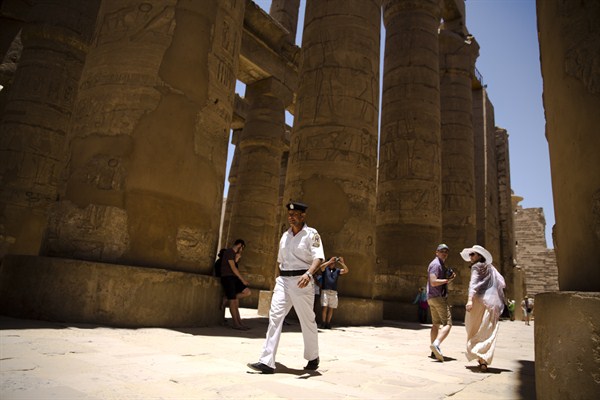Last week it was the Pyramids, and Wednesday, the Karnak Temple in Luxor. Twice in one week, militants attacked major tourism sites in Egypt, reviving fears of a return to the violence that marked the 1990s. Then, the low-level insurgency by Islamic radicals against former President Hosni Mubarak culminated in the horrific 1997 attack on the Temple of Hatsepshut, across the Nile from Luxor, when gunmen killed 58 tourists and six Egyptians.
On Wednesday, a suicide bomber blew himself up in a parking lot just outside the sprawling, Pharaonic-era Karnak Temple along the Nile. Two gunmen then engaged in a firefight with police. The suspected Islamist militants were killed, and four Egyptians, including one police officer, were injured. A week earlier, gunmen on a motorcycle shot and killed two police officers in a brazen daytime attack on a checkpoint on the road leading to the Giza Pyramids, across the Nile from Cairo.
Though the Luxor attack could have been much worse—the suicide bomber was apparently trying to enter the Karnak Temple complex—it is bad news for Egypt’s moribund economy and President Abdel-Fattah el-Sisi’s plans to revive it. “Merely by signaling their intent to attack the tourist industry,” The New York Times’ David Kirkpatrick reported, “the militants are threatening to cut off a vital engine of the Egyptian economy, which Mr. Sisi’s government had just begun to announce was sputtering back after four years of turmoil.”

